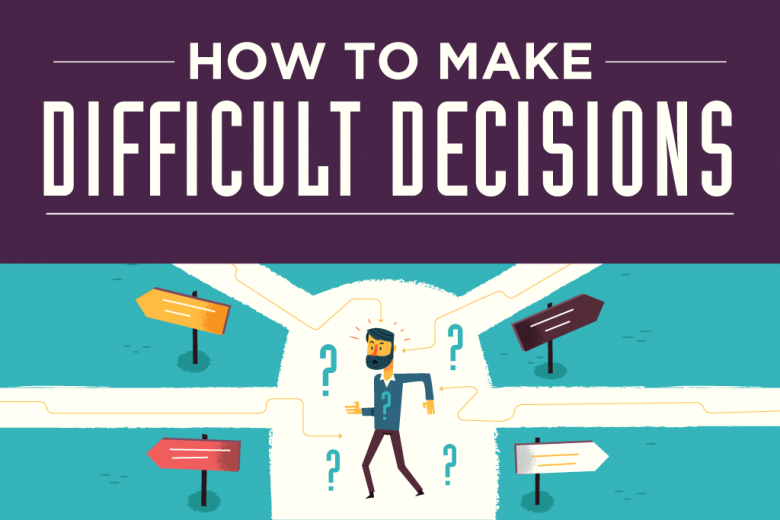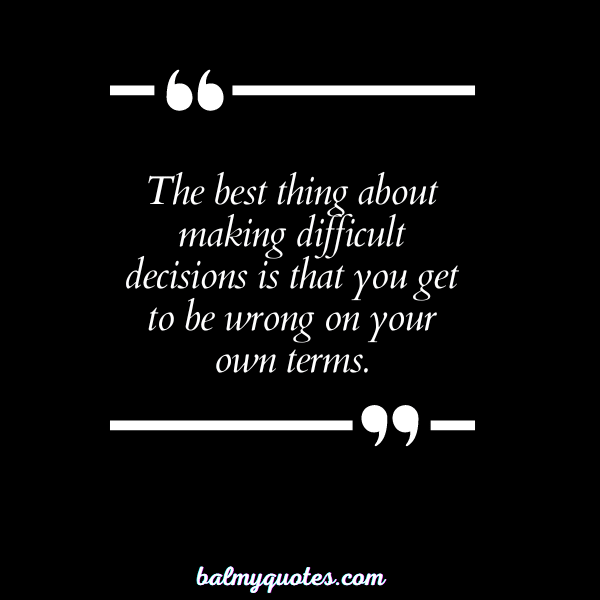How To Make The Hardest Decision Of Your Life

Facing a monumental decision can feel paralyzing, a crossroads where the path forward remains shrouded in uncertainty. These pivotal moments often carry significant weight, impacting not only our own lives but also the lives of those around us. Learning how to navigate these difficult choices is a crucial life skill.
At its core, making a hard decision is about understanding your values, gathering information, and ultimately, accepting the inherent uncertainty of the future. This process isn't about finding the "right" answer, but about making the best possible choice given the available information and your personal compass. It requires both logical reasoning and emotional intelligence.
Recognizing the Need for a Decision
The first step is acknowledging that a significant decision needs to be made. Sometimes, this is obvious, like choosing between two job offers. Other times, it’s more subtle, a persistent feeling of unease or the realization that the current situation is no longer sustainable.
Pay attention to your body and mind. Are you experiencing increased stress, anxiety, or sleep disturbances? These can be indicators that a decision is looming, even if you haven't consciously identified it. Ignoring these signals can lead to further complications.
Gathering Information and Seeking Counsel
Once you've identified the need for a decision, the next step is to gather as much relevant information as possible. This includes researching potential options, considering their pros and cons, and understanding the potential consequences of each choice.
Don't underestimate the power of seeking counsel from trusted sources. This could include family members, friends, mentors, or professionals with expertise in the relevant area.
"Wise counsel makes strong decisions,"according to a study published in the *Journal of Applied Psychology*.
Defining Your Values and Priorities
Ultimately, the best decision aligns with your core values and priorities. Take time to reflect on what truly matters to you. What are your long-term goals? What kind of person do you aspire to be?
Consider how each potential option aligns with these values. Prioritize the choices that bring you closer to your desired future, even if they require short-term sacrifices. This alignment provides a solid foundation for your decision and helps you feel more confident in your choice.
Weighing the Options and Managing Risk
Once you've gathered information and identified your values, it's time to weigh the options. Create a list of pros and cons for each choice, and assign a weight or importance to each factor. This can help you visualize the potential benefits and drawbacks of each path.
Risk management is also crucial. No decision is without risk, but understanding and mitigating potential downsides can increase your confidence. Consider worst-case scenarios and develop contingency plans. This proactive approach can alleviate anxiety and empower you to move forward.
Making the Decision and Committing to It
At some point, you have to make a decision. There will likely still be uncertainty, and that's okay. Trust the process you've followed – the research, the consultation, and the reflection on your values.
Once you've made your choice, commit to it wholeheartedly. Avoid dwelling on what might have been and focus on making the most of the path you've chosen. Embrace the challenges and celebrate the successes along the way.
Living with the Consequences and Learning from the Experience
Every decision has consequences, both positive and negative. Learn to accept responsibility for the outcomes of your choices. Even if things don't go as planned, view the experience as an opportunity for growth.
Ask yourself what you learned from the process. What would you do differently next time? Reflecting on your past decisions, both good and bad, will help you develop your decision-making skills and navigate future challenges with greater confidence. Making the hardest decision of your life is not a one-time event, but a continuous journey of learning and growth.
In conclusion, navigating life's hardest decisions requires a blend of careful planning, self-awareness, and a willingness to embrace uncertainty. By following these steps, you can increase your confidence in your choices and ultimately lead a more fulfilling and purposeful life. Remember, even the most challenging decisions can lead to profound growth and new opportunities.


















